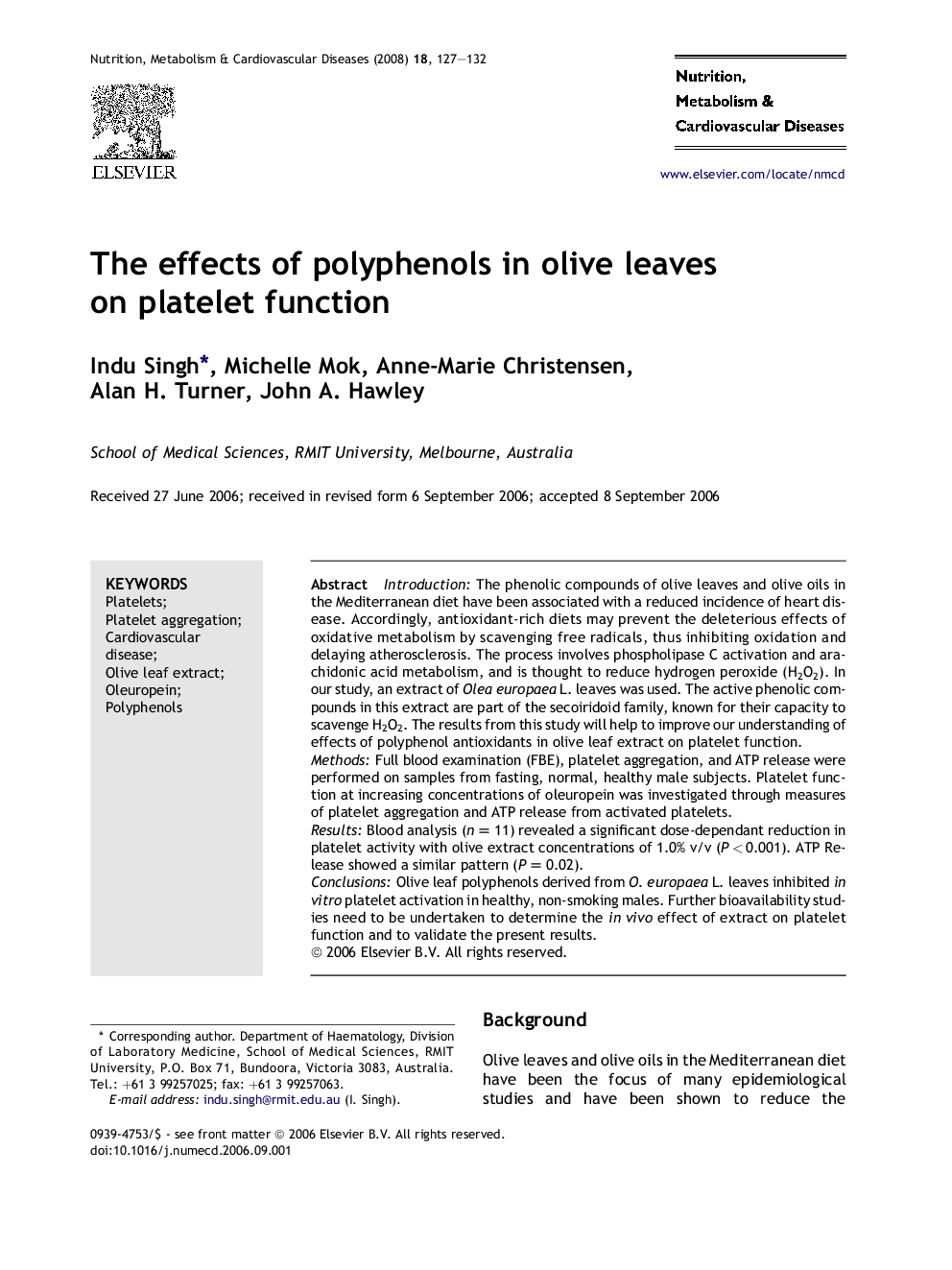| Article ID | Journal | Published Year | Pages | File Type |
|---|---|---|---|---|
| 3002748 | Nutrition, Metabolism and Cardiovascular Diseases | 2008 | 6 Pages |
IntroductionThe phenolic compounds of olive leaves and olive oils in the Mediterranean diet have been associated with a reduced incidence of heart disease. Accordingly, antioxidant-rich diets may prevent the deleterious effects of oxidative metabolism by scavenging free radicals, thus inhibiting oxidation and delaying atherosclerosis. The process involves phospholipase C activation and arachidonic acid metabolism, and is thought to reduce hydrogen peroxide (H2O2). In our study, an extract of Olea europaea L. leaves was used. The active phenolic compounds in this extract are part of the secoiridoid family, known for their capacity to scavenge H2O2. The results from this study will help to improve our understanding of effects of polyphenol antioxidants in olive leaf extract on platelet function.MethodsFull blood examination (FBE), platelet aggregation, and ATP release were performed on samples from fasting, normal, healthy male subjects. Platelet function at increasing concentrations of oleuropein was investigated through measures of platelet aggregation and ATP release from activated platelets.ResultsBlood analysis (n = 11) revealed a significant dose-dependant reduction in platelet activity with olive extract concentrations of 1.0% v/v (P < 0.001). ATP Release showed a similar pattern (P = 0.02).ConclusionsOlive leaf polyphenols derived from O. europaea L. leaves inhibited in vitro platelet activation in healthy, non-smoking males. Further bioavailability studies need to be undertaken to determine the in vivo effect of extract on platelet function and to validate the present results.
